Nora Favorov is a freelance, professional translator working in the Russian>English market and is an active member of the American Translator Association. She recently took some time from her piles of manuscripts to talk about how she came to work in her profession and what it’s like to work in a profession that often must bridge art and science.
SRAS: How long have you been a translator and how did you first start in the profession?
Nora Favorov: My last year of college I took a course in Russian history and decided on impulse it would be fun to take the language while I was at it. I immediately fell in love and wound up taking every possible opportunity to study it (summer school, a post-college semester abroad, etc.). It now seems odd that translation as a career did not occur to me early on, even though translation questions fascinated me from the start. I toyed with literary translation from time to time, but only became serious about it ten years later, in the late 1980s. I decided that to be a translator, I needed a better grounding in Russian language, literature, and culture, so I enrolled in a Master’s program in Russian literature. My department occasionally received calls from people needing something translated from Russian to English. I now realize how naïve these people were to assume that students (or even professors) of Russian literature or linguistics could handle these translations, but these calls to the department gave me my first opportunities to work as a professional translator. I am embarrassed to admit that I even took work into Russian, although I at least had the wisdom to always hire a native speaker to edit my translation. Now, I would not dream of taking on a translation into Russian. Since finishing graduate school I have gradually built up a client base. It took about five years to get to the point where I really had a full time job of it (very full—some weeks go well beyond 40-50 hours). My career really took off when I became involved in the American Translators Association. Word of mouth is the best way to get work, so getting to know agency owners and fellow translators brought me all my biggest clients.
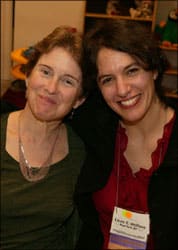
SRAS: Having done some translation myself, I can concur that this type of naiveté is problematic – that often much of a translator’s job is educating the client on what constitutes a good translation, which can be doubly difficult because often the client does not speak the target language (the language the translation is going to). Thus, it can be difficult to explain why someone should pay, say, $60 for professional translation when they are used to paying students $15 for an amateur translation. There is also a major difference between being able to speak a language and being able to translate to or from that language – most people do not realize this. Professionals are often made all-too-aware of the drastic difference that can occur, however, when they are contacted to “proofread” a text that has been translated by an unqualified translator. I assume you have experienced this common situation before? Can you comment briefly on it?
NF: That’s an interesting point you bring up. I think all new translators fall into this pitfall. They are offered a text to edit that was translated by a non-native speaker of the target language and accept it without realizing that it is always faster to translate a source text from scratch than to edit a translation by a non-native speaker, even if the translator’s English sounds almost perfect when they speak it. The rates I list at the end of my resume specifically state that I charge double my normal editing rate when I edit non-native speakers, and even at double my normal editing rate it is a bad deal for me. Having said that, when you are new to the profession everything, including editing non-native speaker translations, is a learning experience and of potential value. You mention client naiveté. Unfortunately, often it is not naiveté but simply common practice to have English translations done in Russia and edited in America by native speakers. As long as agencies can work this arrangement for less than they would usually pay for translation, it’s a good deal for the agencies.
SRAS: So you started out as an amateur, but what training or education did you have to prepare you to be a professional translator?
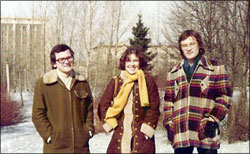
NF: I have to admit that my training has been somewhat haphazard. In Russia, most (but not all) translators and interpreters are educated at one of the country’s excellent schools of language and translation. There are several very good translation programs in the States, but I never considered enroling in one. Personally, I learned on the job, which may not be the best way to do it. If you are absolutely determined to understand what a text means and figure out the best way to convey its meaning in English – thanks to the Internet and the connections it affords to people and information – you can do so. If you accept a job in a field you are not strong in, you have to be prepared to do a lot of research. If you are a beginner translator going through this on-the-job training, you should hire a more experienced translator to edit your translation. If your work comes back with too much “red ink” and you see you made some serious errors, it might be time to go back to the drawing board and further your education more formally or limit the subject areas in which you accept work. I would have to say that I learned most of what makes me a good translator by having my work edited by my colleagues (as well as by having my papers edited by my professors in graduate school, since to be a good translator you need to be a good writer).
SRAS: Can you describe the process of translating – from finding the job, to the process you use for producing a finished translation, to delivering the work and receiving payment.
NF: In a typical case, a direct client or agency approaches you by email asking whether or not you’re available to take on a job. If it’s a book there might be a contract spelling out the rate per word, deadline, payment terms, delivery format, etc. If it’s just an agency hiring you to translate some medical documents, birth certificates, or reports, there will probably be a “Work Order” generated stating the deadline, financial terms, etc. For some reason payment is calculated in terms of target, i.e., English words, despite the fact that there is significant word count expansion going into English (mostly because of the “ofs” and articles, not to mention our compound nouns like “carry out” and our two-word infinitives). Jobs are usually delivered in Microsoft Word. This makes it easy to work right in the source file, deleting a paragraph at a time once it has been translated (of course I save the original file under a different name so I can refer to it as I do the final edit). If the file is not in Word, but in PDF or jpg or even—heaven forfend!—on actual paper, I always convert it into a Word file with OCR software before starting work. Before deleting a paragraph, I always read my translated version twice: once just to see how it reads in English and once checking it word-for-word against the original paragraph. This can be tricky, because often the syntax has changed.
There is a small set of dictionaries I use the most and a larger one I dip into occasionally. My Katzner (English-Russian, Russian-English Dictionary, Wiley, 1994) is always by my side. If the job is medical or technical I will also have the Callaham (Callaham’s Russian-English Dictionary of Science and Technology, Fourth Edition, Wiley, 1996) on my desk. If the job is literary or highly idiomatic, I will usually be grabbing for my Lubensky frequently (Random House Russian-English Dictionary of Idioms). No aspiring translator should be without these three resources. However, the first place I look in my word hunt is multitran.ru. Usually I use this site more as a thesaurus than a dictionary. As a dictionary it can be a little unreliable, but it’s a great place to hunt for creative solutions and specific phrases. Several times a day I run into a word I can’t find anywhere and then I usually search for it on yandex.ru. This site has a dictionary tab that searches a large database of the main monolingual Russian dictionaries (most of which are on my shelf, but it’s just easier to paste the word into Yandex and have it search all of them at once). If that doesn’t work, then I go back to the “везде” tab (the yandex homepage) that allows an Internet-wide search and look at the contexts the word is used in and try to get some idea of its meaning that way. Once my detective work finally leads me to the word’s meaning and an appropriate translation, I always put it in one of my glossaries. Another great resource is translator forums, like the Yahoo Russian Translator Club(which is available by invitation only) and others on Proz.com and elsewhere.
Other websites I use every day are Wikipedia (which may have its weaknesses, but is a great translator’s assistant), and Sokr.ru (database of Russian acronyms). I also use a doublewide monitor so that I can easily keep two full-sized windows open side-by-side—usually the text I’m working on and multitran.
When the entire job (or chapter thereof) is completed, I proof it all over again, editing for style, hunting for typos and translation errors. If necessary I check any formatting or style issues against my Chicago Manual of Style. If I am lucky enough to be working directly with the author of a book or article I submit my draft translation along with a list of questions corresponding to highlighted portions of the text. Author feedback is tremendously helpful. Whenever translators deal with experts in a given field they should use that opportunity to build up their own glossaries. Once a job is complete it is submitted with an invoice. This is done electronically. It has been at least ten years since I actually had to mail out a job and an invoice via USPS. Book manuscripts are an exception. Most publishers want at least one hard copy from the translator. Another exception is educational transcripts. US educational institutions usually require a signed translation by a certified translator, if such exists for the language involved (ATA has a certification program for a limited number of languages). I keep track of my invoices using a simple Word table, recording the dates that invoices are sent out and the date that payment is received. If I notice something has not been paid after a month of so (or longer if the agency has specified a six- or eight-week term), I write to inquire about the status of payment.
SRAS: Would you describe translating as a “good job” (in terms of pay and job satisfaction). Why or why not?
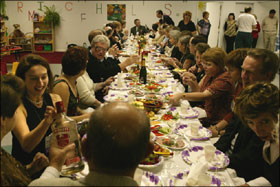
NF: In my case, I would give translation very high marks for job satisfaction and about a C for pay. Considering the education and ability required to produce quality translation, it is not very well paid. On the other hand, being a freelance translator has its advantages. I set my own schedule and decide which jobs to take and which to turn down. My commute involves walking 10 steps from my kitchen table to my desk. If money was my top priority I could do better.
Because I have a strong interest in literary translation and Russian history, I take on low-paying jobs as a “labor of love.” I used to believe that translation professionals with strong backgrounds in business or engineering earned a lot more than I did, but over the years I have become aware of the fact that translators working, for example, for the petroleum industry often work at a lower per word rate than I do. Perhaps this is because technical translation is easier for a non-native English speaker to handle, so there is more competition from Russia-based translators. In any event, I derive tremendous pleasure from my work and from my interaction with colleagues, both via email and at least once a year in person at the American Translators Association conference. Most importantly, I learn something new every day – not just superficial facts, but in the course of my work I have to delve deeply into a wide range of subjects. Almost all jobs involve a bit of background reading and research.
SRAS: What is the single most challenging aspect of being a self-employed translator? (Finding work, doing taxes, pleasing clients, something else?)
NF: At first, finding work was the most challenging aspect of freelancing, but now that I have a pretty well-established client base I would have another answer to that question. It is just physically hard to sit at the computer for 8 to 12 hours per day. I don’t know anyone who does this without suffering some kind of chronic neck or back pain. The only other thing that can be so challenging that it takes you over the threshold from “fun” to “suffering” is deadlines that are a bit too tight. There is nothing like that sinking feeling when you have committed to turn in a job in a few hours and you suddenly realize you can’t make head or tails of the text you’re dealing with. With enough time, you can always figure something out, but without sufficient time it’s sometimes just impossible. This is one reason I so value the native Russian colleagues I work closely with. It’s a comfort to know that native Russian speakers with a variety of backgrounds are just an email away. As I mentioned, there are also online forums that are extremely helpful. One other business-related challenge worth mentioning is generating price quotes on jobs. There is tremendous downward price pressure and sometimes it’s hard to stick to your guns and maintain your per-word rate. And sometimes we translators agree to do certain jobs for well under our usual rate, either because of volume or because the deadline is extremely flexible, or simply because the subject matter is interesting or the cause is worthy.
SRAS: Again, I concur. Working largely in publishing myself, I’m constantly juggling deadlines and dealing with the “sediment” issues. I find that small amounts (I don’t have time for much more!) of regular exercise does wonders for the stress that comes from both of these issues.
To return to the specific topic of translation: you mention “translation problems” before. Can you give us a few examples of interesting words or phrases that you’ve found particularly hard to translate and how you resolved the translation?
NF: It is difficult to construct even the simplest sentence in English that would have an exact, word-for-word equivalent in Russian. Even something as simple as “I have a dog” requires an entirely different syntax and perhaps even has different underlying semantic nuances. Obviously, we all learn to overcome the “I have” problem our first semester of Russian, but this lack of semantic and syntactic equivalence means that there’s some sort of challenge in almost every sentence. There are a number of words that almost always require a translator to pause and think.
The preposition при is one. In various contexts I have used a broad range of solutions for this word: during/during the reign of/when/involving/under/if/near/that is associated with/under the auspices of. Sometimes it’s best to simply recast the sentence, as in the following example:
-
Russian: Кроме того, активным образом ведется подготовка совместного плана действий и комплексной программы по экологической безопасности Баренц-региона при добыче, отгрузке и транспортировке нефти.
-
English: Furthermore, efforts are underway to devise a joint plan of action and integrated program for environmental safety in the Barents region covering the extraction, loading, and transporting of oil.
In the translation above, you can see other “liberties” taken in the interest of English readability. “Efforts are underway” is hardly a literal translation of “активным образом ведется подготовка.” But of course in English we don’t say “in an active way preparation is being conducted.”
There are many more problem words, including: освоение, конъюнктура, препарат, схема, консультация and many medical false cognates like остеохондроз (why does every other elderly woman in Russia have this disease, while in the States osteochondrosis primarily afflicts children and animals?). The list of other common false cognates would include: актуальный (current, urgent timely, relevant—not actual), контроль (“control” in the sense of quality control, i.e., monitoring, but not in the sense of “having power or influence over”), концепция (rarely should be translated as “conception”—usually framework, strategy, outline, plan, doctrine), моральный (often should be translated using “mental” or “emotional”), процесс (sometimes process, sometimes trial), техника (the first time I ran into оргтехника I certainly didn’t realize it meant office equipment).
SRAS: You’ve mentioned the ATA before as a resource to help you in your work. Can you tell us more about them and any other professional organizations in which you hold membership? What services do they offer?
NF: I am a member of the American Translators Association (ATA), the Association of Women in Slavic Studies (AWSS), the American Literary Translator’s Association (ALTA), and the American Association of Teachers of Slavic and East European Languages (AATSEEL). In the case of AWSS, ALTA, and AATSEEL, I maintain my membership mainly to support organizations that do good work and to receive their newsletters. My membership in ATA, on the other hand, is a more meat and potatoes matter. My work within the organization has exposed me to a wide range of colleagues and agency owners and this increased visibility has definitely translated into more work. I am also certified in Russian to English translation, a fact listed in the database of translators and interpreters featured on ATA’s website. I attend the ATA conference every year and benefit from conference presentations (I occasionally make them myself). I also write for and am associate editor of the newsletter of ATA’s Slavic Language Division (SlavFile). I am also a grader for ATA’s Russian into English certification program, which is both an honor and highly educational, because in designing and grading certification exams I have an opportunity to see how the other graders handle translation challenges and to discuss both our own translations of exam passages and those of candidates.
SRAS: What advice would you give students who hope to become translators?
NF: There are plenty of “free” learning opportunities out there. Find material that has been translated, and try to translate it yourself before you look at the professional translation. Then check your own translation against it. This is a great training tool. Whether or not you decide to get a degree in translation, find yourself some kind of mentor. The best way to do this is to become involved in the ATA.
More From Translators from the Field
(Includes current article)

Adam Fuss: Translating Russian Communications
Adam Fuss has worked as a freelance writer, editor, translator, and communications professional for over eight years. Prior to establishing ABF Communications in early 2008, he worked on a series of assignments in Moscow, Russia as a writer and translator for several high-profile global corporate communications projects. He holds a graduate degree from Georgetown University’s School of Foreign Service. […]
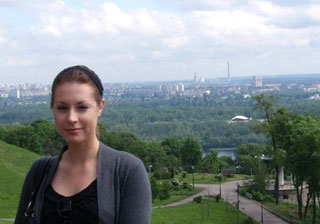
Erin Decker: Translation, Editing, and Advancement in Russia
Erin Decker holds a BA in Political Science and International Studies (Global Security) from the University of Wisconsin-Madison. After completing SRAS’s Translate Abroad program in 2009, she went on to find employment as a translator and editor in Moscow and has lived there since. SRAS: You are currently an analyst-level editor for Equity & Fixed Income Research at […]
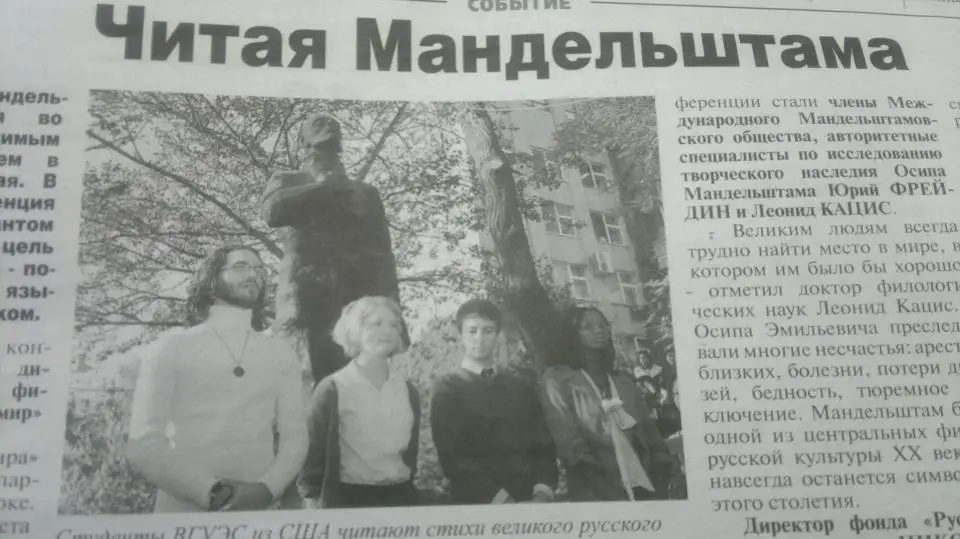
Translating Mandelstam in Vladivostok
One of the things that I enjoy about the Vladivostok State University of Economics and Service is how the Russian language department there is always trying to involve the international students in cultural events. Whether it’s a weekend trip to an archeological dig site, or a visit to the theater to see a movie about […]

Robert Chandler: Translation as a Career and a Love
Robert Chandler graduated with a BA in Russian and English Literature from Leeds University. His translations from Russian include Vasily Grossman’s Life and Fate and Everything Flows, Leskov’s Lady Macbeth of Mtsensk and Aleksander Pushkin’s The Captain’s Daughter. His co-translations of Andrey Platonov have won prizes both in the UK and in the USA. His translation of Hamid Ismailov’s The Railway […]
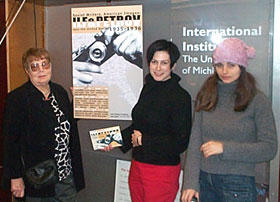
Anne Fisher: Translation and Interpreting as Professions
Dr. Anne Fisher holds a Ph.D. in Russian Literature from The University of Michigan. She has taught Russian in several institutes of higher learning and is now a professional translator and interpertor living in California. Her first major translation, Ilf and Petrov’s American Road Trip: The 1935 Travelogue of Two Soviet Writers, was shortlisted for the […]
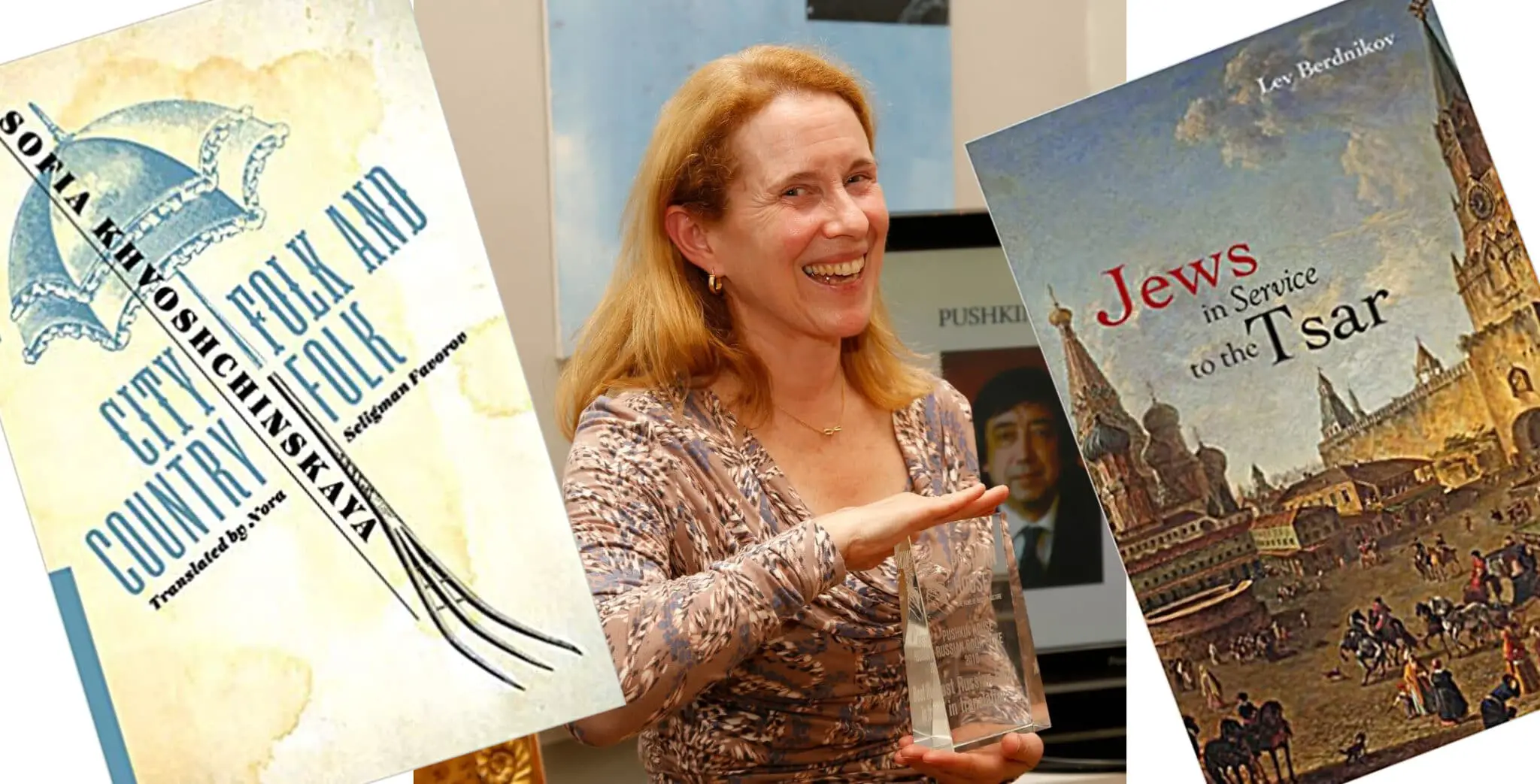
The Accidental Translator: Interview with Nora Favorov
Nora Favorov is a freelance, professional translator working in the Russian>English market and is an active member of the American Translator Association. She recently took some time from her piles of manuscripts to talk about how she came to work in her profession and what it’s like to work in a profession that often must bridge art […]
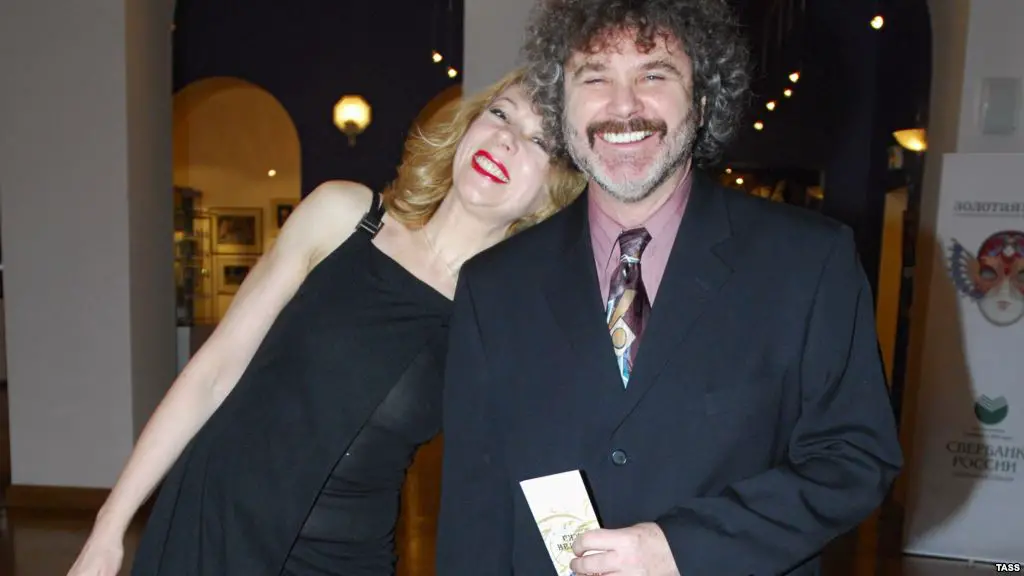
John Freedman: Man of the Newspaper, Theater, etc
John Freedman first came to Moscow in 1988 to research his dissertation for a Ph.D in Russian Literature. He found out a lot. He also found a woman he loves and some incredible professional and personal opportunities. He is now an editor for Moscow’s largest English-language newspaper, a published author and translator, and has been […]





